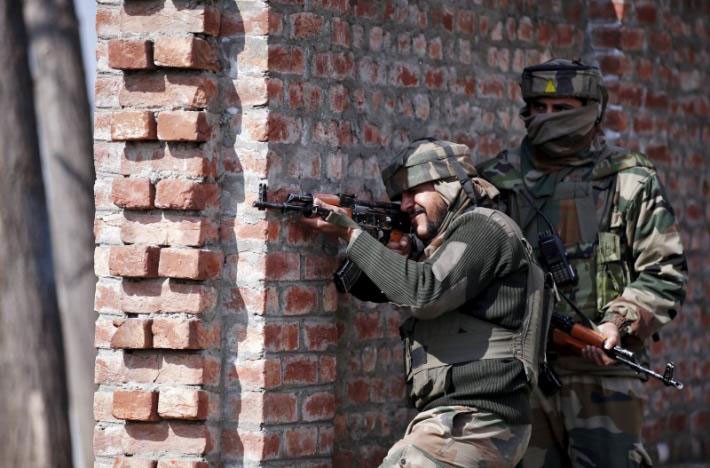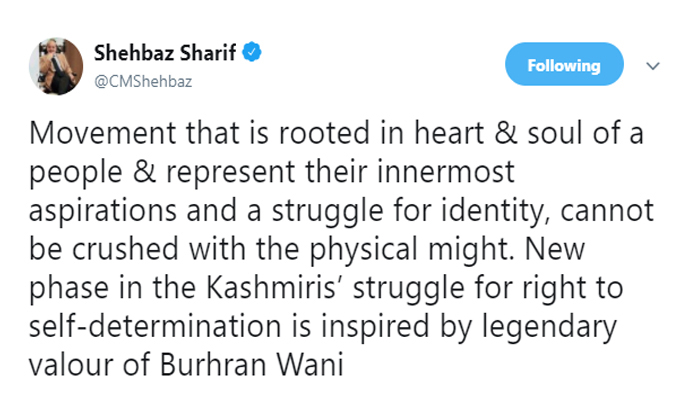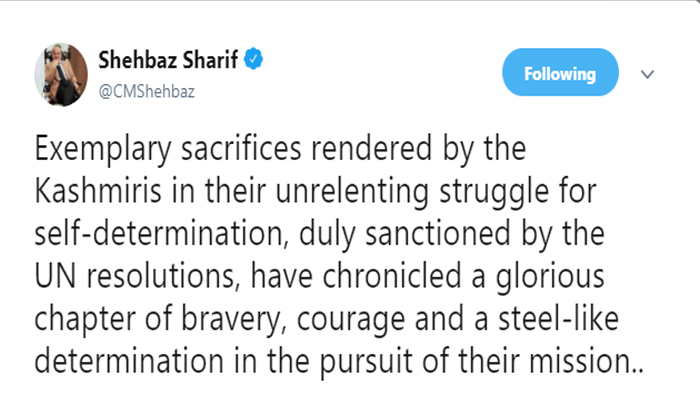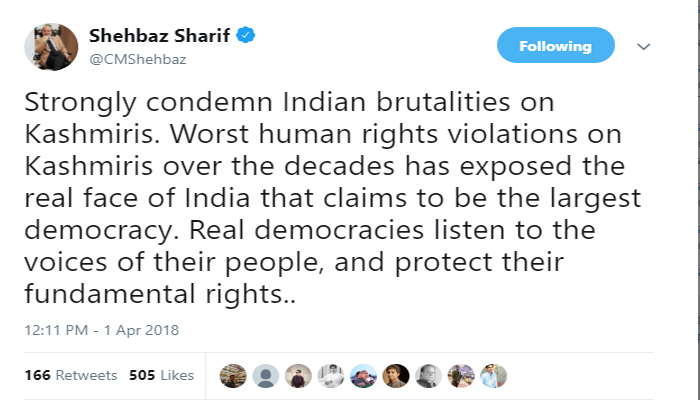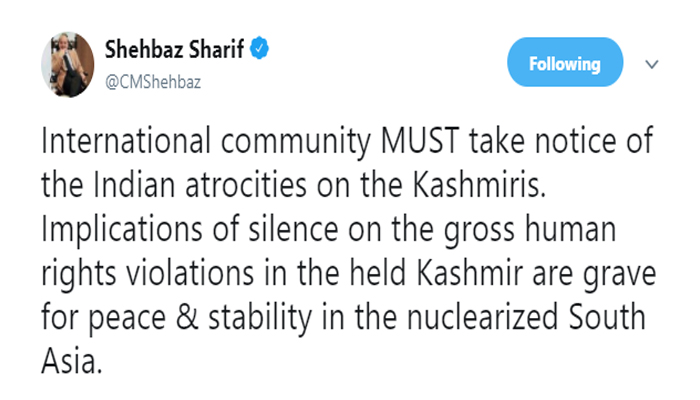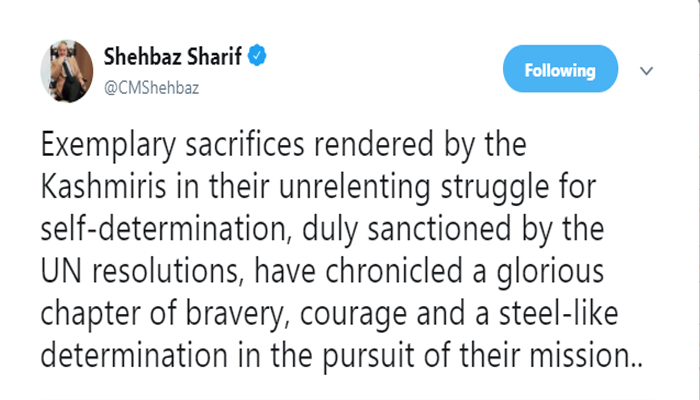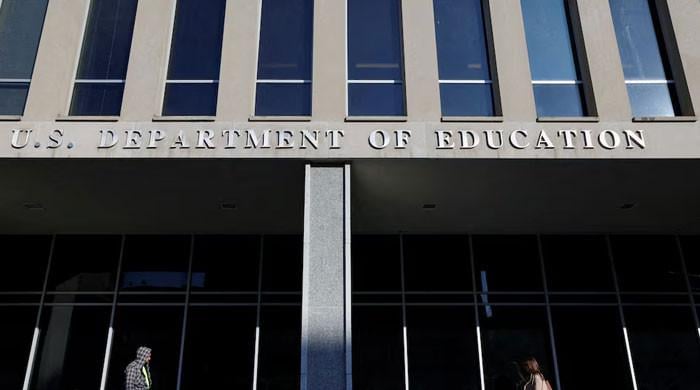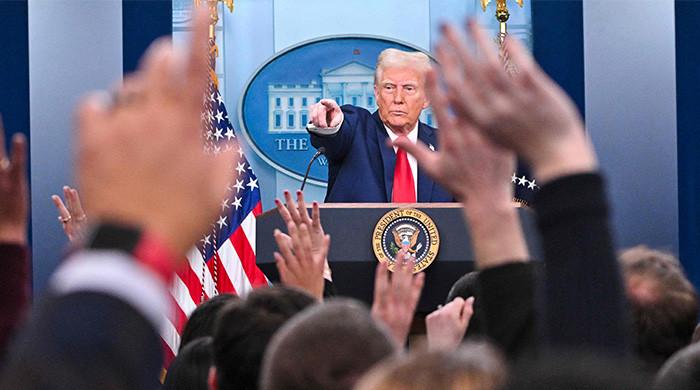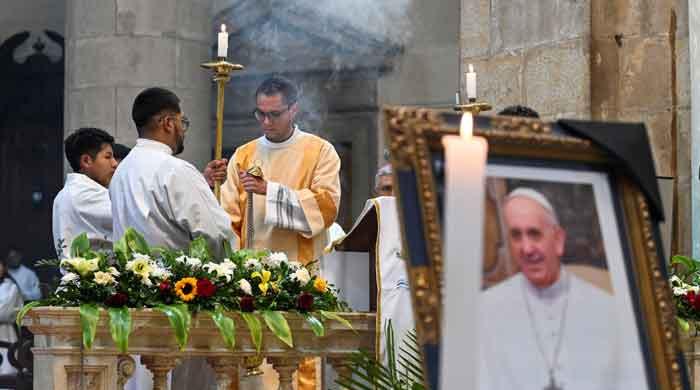Pakistan strongly condemns Indian aggression in occupied Kashmir: FO
17 Kashmiri youth martyred in cordon, search operations by Indian troops
April 02, 2018
ISLAMABAD/LAHORE: The Foreign Office on Sunday strongly condemned the gross violation of human rights by Indian troops that resulted in the martyrdom of seventeen Kashmiris in Indian-held Kashmir.
At least 17 Kashmiri youth were martyred after Indian occupational forces conducted cordon and search operations in occupied Kashmir's Islamabad and Shopian districts, according to the Kashmir Media Service (KMS).
The families of those martyred have been destroyed, the Foreign Office said, adding that Indian forces were continuing a crackdown on the unarmed protesters in the area.
The Foreign Office denounced the suspension of internet services in India, terming it as a tactic to drown the voices of people. The statement further added that India was playing the part of a court, lawyer, and executioner for the mass execution of Kashmiris.
'Occupied Kashmir bathed in blood'
Foreign Minister Khawaja Asif strongly condemned the brutality of Indian forces in occupied Kashmir.
The minister said that the worse form of state terrorism is underway in occupied Kashmir.
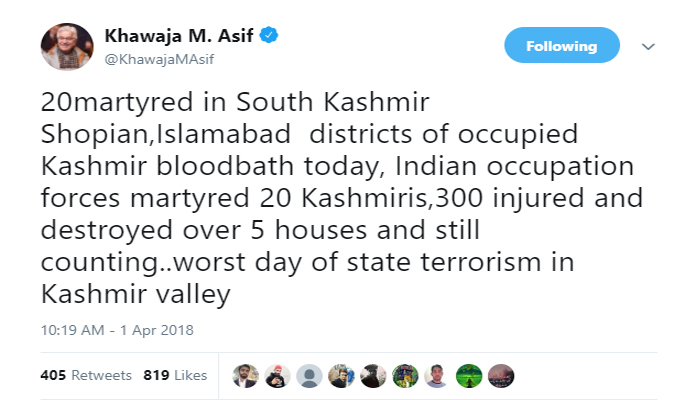
"[Indian occupied] Kashmir has been bathed in blood," Asif said, adding that dozens of sons were martyred in the area.
Kashmiris are counting bodies and arranging funerals, and their blood is compelling the international community's conscience, Asif said.
The minister strongly condemned Indian state's terrorism to annihilate the Kashmiri youth and stressed that Pakistan is standing by the Kashmiris.
'Worst human rights violations on Kashmiris'
Punjab Chief Minister Shehbaz Sharif took to twitter to condemn the Indian human rights violations in occupied Kashmir.
" [I] strongly condemn Indian brutalities on Kashmiris. Worst human rights violations on Kashmiris over the decades have exposed the real face of India that claims to be the largest democracy. Real democracies listen to the voices of their people, and protect their fundamental rights," tweeted Shehbaz.
The chief minister warned of grave implications for peace and stability in the region as a result of the international community's silence on the 'gross human rights violations in held Kashmir.'
Each time [that] India tried to hoodwink the international community by seeking to describe the indigenous freedom movement as externally inspired, the Kashmiris called it [a] and exposed the reality of its designs through the exercise of their democratic right of peaceful protest," wrote the minister.
